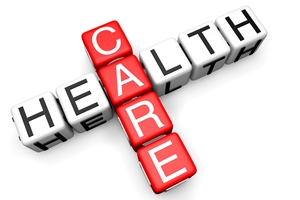
OVERVIEW
On Dec. 2, 2019, the Internal Revenue Service (IRS) issued Notice 2019-63 to:
- Extend the due date for furnishing forms under Sections 6055 and 6056 for 2019 from Jan. 31, 2020, to March 2, 2020;
- Extend good-faith transition relief from penalties related to 2019 information reporting under Sections 6055 and 6056; and
- Provide additional penalty relief related to furnishing 2019 forms to individuals under Section 6055. Under this relief,employers will only have to provide Form 1095-B to covered individuals upon request.
The due date for filing forms with the IRS for 2019 remains Feb. 28, 2020 (March 31, 2020, if filing electronically).
ACTION STEPS
The IRS is encouraging reporting entities to furnish statements as soon as they are able. No request or other documentation is required to take advantage of the extended deadline.
Section 6055 and 6056 Reporting
Sections 6055 and 6056 were added to the Internal Revenue Code (Code) by the Affordable Care Act (ACA).
- Section 6055 applies to providers of minimum essential coverage (MEC), such as health insurance issuers and employers with self-insured health plans. These entities will generally use Forms 1094-B and 1095-B to report information about the coverage they provided during the previous year.
- Section 6056 applies to applicable large employers (ALEs)—generally, those employers with 50 or more full-time employees, including full-time equivalents, in the previous year. ALEs will use Forms 1094-C and 1095-C to report information relating to the health coverage that they offer (or do not offer) to their full-time employees.
Extended Furnishing Deadline
The IRS has again determined that some employers, insurers and other providers of MEC need additional time to gather and analyze the information, and prepare 2019 Forms 1095-B and 1095-C to be furnished to individuals.
Notice 2019-63 provides an additional 31 days for furnishing the 2019 Form 1095-B and Form 1095-C, extending the due date from Jan. 31, 2020, to March 2, 2020.
Despite the delay, employers and other coverage providers are encouraged to furnish 2019 statements to individuals as soon as they are able.
Filers are not required to submit any request or other documentation to the IRS to take advantage of the extended furnishing due date provided by Notice 2019-63. Because this extended furnishing deadline applies automatically to all reporting entities, the IRS will not grant additional extensions of time of up to 30 days to furnish Forms 1095-B and 1095-C. As a result, the IRS will not formally respond to any requests that have already been submitted for 30-day extensions of time to furnish statements for 2019.
Impact on Filing Deadline
The IRS has determined that there is no need for additional time for employers, insurers and other providers of MEC to file 2019 forms with the IRS. Therefore, Notice 2019-63 does not extend the due date for filing Forms 1094-B, 1095-B, 1094-C or 1095-C with the IRS for 2019. This due date remains:
- Feb. 28, 2020, if filing on paper; or
- March 31, 2020, if filing electronically.
Because the due dates are unchanged, potential automatic extensions of time for filing information returns are still available under the normal rules by submitting a Form 8809. The notice also does not affect the rules regarding additional extensions of time to file under certain hardship conditions.
Extension of Good-Faith Transition Relief from Penalties for 2019
Notice 2019-63 also extends transition relief from penalties for providing incorrect or incomplete information to reporting entities that can show that they have made good-faith efforts to comply with the Sections 6055 and 6056 reporting requirements for 2019 (both for furnishing to individuals and for filing with the IRS).
This relief applies to missing and inaccurate taxpayer identification numbers and dates of birth, as well as other information required on the return or statement. No relief is provided for reporting entities that:
- Do not make a good-faith effort to comply with the regulations; or
- Fail to file an information return or furnish a statement by the due dates (as extended) (except as otherwise provided in Notice 2019-63).
In determining good faith, the IRS will take into account whether a reporting entity made reasonable efforts to prepare for reporting the required information to the IRS and furnishing it to individuals (such as gathering and transmitting the necessary data to an agent to prepare the data for submission to the IRS or testing its ability to transmit information to the IRS). The IRS will also take into account the extent to which the reporting entity made reasonable efforts to prepare for this reporting requirement, such as gathering and transmitting the necessary data to an agent to prepare the data for filing or testing its ability to transmit information to the IRS.
Penalty Relief Regarding the Furnishing Requirement under Section 6055 for 2019
The individual mandate penalty has been reduced to zero, beginning in 2019. As a result, the IRS has been studying whether and how the Section 6055 reporting requirements should change, if at all, for future years. Because the individual mandate penalty has been reduced to zero in 2019, an individual does not need the information on Form 1095-B in order to calculate his or her federal tax liability or file a federal income tax return. However, reporting entities required to furnish Form 1095-B to individuals must continue to expend resources to do so.
As a result, Notice 2019-63 provides relief from the penalty for failing to furnish a statement to individuals as required under Section 6055 in 2019 in certain cases. Specifically, the IRS will not assess a penalty under Section 6722 against reporting entities for failing to furnish a Form 1095-B to responsible individuals in cases where the following two conditions are met:
- The reporting entity prominently posts a notice on its website stating that responsible individuals may receive a copy of their 2019 Form 1095-B upon request, accompanied by an email address and a physical address to which a request may be sent, as well as a telephone number that responsible individuals can use to contact the reporting entity with any questions; and
- The reporting entity furnishes a 2019 Form 1095-B to any responsible individual upon request within 30 days of the date the request is received.
ALEs that offer self-insured health plans are generally required to use Form 1095-C, Part III, to meet the Section 6055 reporting requirements, instead of Form 1095-B. This 2019 Section 6055 furnishing penalty relief does not extend to the requirement to furnish Forms 1095-C to full-time employees. As a result, for full-time employees enrolled in self-insured health plans, penalties will continue to be assessed consistent with prior enforcement policies for any failure by ALEs to furnish Form 1095-C, including Part III, according to the applicable instructions. However, the 2019 Section 6055 furnishing penalty relief does extend to the requirement to furnish the Form 1095-C to any non-full-time employees enrolled in an ALE’s self-insured health plan, subject to the requirements of the 2019 Section 6055 furnishing penalty relief.
The 2019 Section 6055 furnishing penalty relief also does not affect the requirement or the deadline to file the 2019 Forms 1094-B, 1095-B, 1094-C or 1095-C, as applicable, with the IRS.
This Compliance Bulletin is not intended to be exhaustive nor should any discussion or opinions be construed as legal advice. Readers should contact legal counsel for legal advice.
© 2018 Zywave, Inc. All rights reserved.





